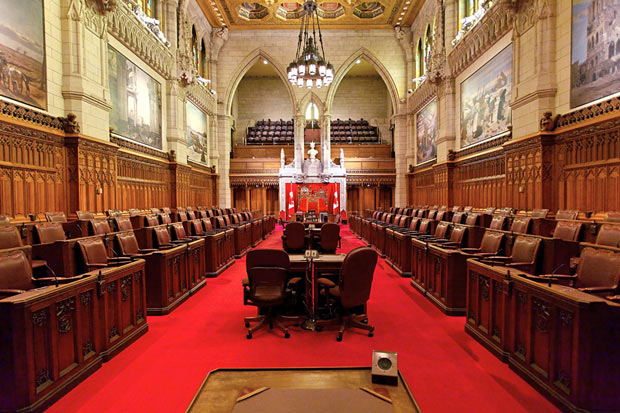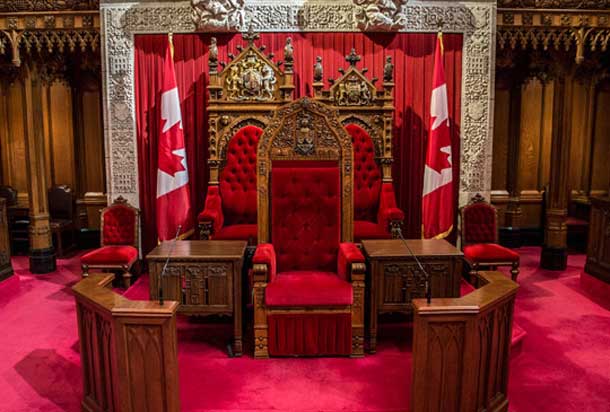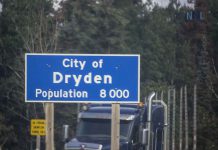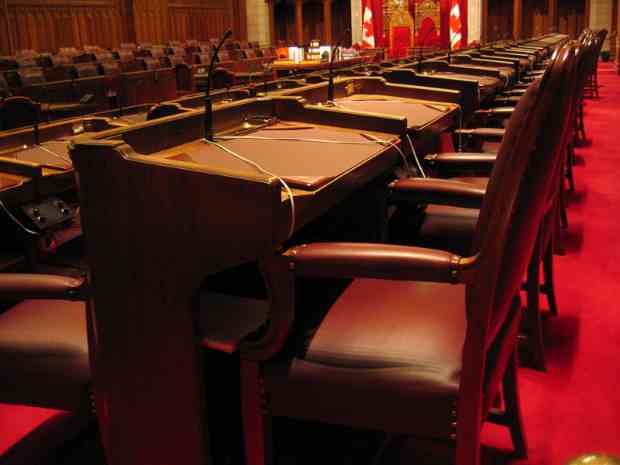
Better an Empty Seat than an Unaccountable Senator
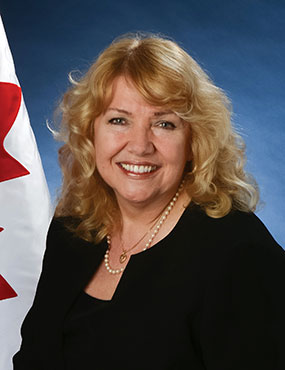
THUNDER BAY – EDITORIAL – Senator Lynn Beyak is continuing to receive reaction over her website postings on her Senate of Canada page. The Conservatives kicked the Senator out of their caucus. Treaty 3 and Nishnawbe Aski Nation have launched a website calling for the Senator to resign. In Dryden, local activists are taking up the cause to boycott two car dealerships owned by members of the Beyak family.
Additionally, Senator Beyak’s son, Nick Beyak, who has spoken out in support of his mother’s efforts on residential school has garnered a letter from the Grand Chief of Treaty 3 that implies support for a boycott.
The issue has flared up in the Council Chambers in Dryden where Beyak has been appointed, with fellow Councillors condemning his actions.
There are some calling for an overall boycott of Dryden by First Nations, perhaps even leading to the Little Bands Hockey Tournament.
That is because unlike an elected Member of Parliament, appointed Senators are in the wide scope of things basically unaccountable.
The only actions anyone could take would focus on what people see as a way to make an impact.
Even the Nishnawbe Aski Nation and Treaty Three petition seeking to have the Senator resign, in asking people to mail or fax petitions to her Senate Office might only see those petitions hit the Senator’s trash can.
The frustration over Senator Beyak is however growing.
The Anglican Church of Canada in an open letter to the Senator state:
“Not only in the Red Chamber on Parliament Hill, but across the country, many people – both Indigenous and non-Indigenous – were dismayed by your remarks. You said “I was disappointed in the TRC’s Report and that it didn’t focus on the good,” associated with Residential Schools. Had you, Senator, made these remarks within a discussion of the TRC’s Report, your comments might have been less shocking.
“Senator Beyak, you are quite right in saying that for a small minority of survivors, their personal experiences of Residential School were “good”. But in much greater numbers, the personal experiences of children who were housed in those schools were “bad” – very bad in fact. One only needs to have attended a local, regional or national event hosted by Canada’s Truth & Reconciliation Commission to know this. The Commissioners listened to the personal stories of thousands of students – of survivors – all of which bore witness to the horrific experience they had.
“There are hundreds of students who went to Residential Schools administered by the Anglican Church of Canada (ACC). They have told their stories at our church’s National Native Convocation and at Sacred Circle Gatherings. We have been rendered speechless by what we heard. We have hung our heads in shame and raised them with remorse over the pain our church inflicted upon those children.
“There was nothing good about a federal government policy of forcibly removing children “from their evil surroundings”, housing them in schools with the intent of “killing the Indian in the child…and turning them into a civilized adult”. It was an attempt at cultural genocide, an attempt whose failure bears witness to the courage and resilience of those children and their communities. As elder Barney Williams of the Survivors’ Society has so often said, “We were all brave children.”
“There was nothing good about practices of taking away children, removing their traditional dress, cutting their hair, taking away their name, confiscating their personal effects and giving them a number.
“There was nothing good about forbidding children to speak their own language, to sing and dance in a powwow, to practice their own spirituality. It was a denial of their dignity and human rights.”
Senator Beyak appears to have, rather than seek to close the wounds, she is working to justify the residential school era. This is causing increased trauma for many of the students who were forced to attend, were abused, and
Anglican Church – Nothing Good
The Anglican Church says, “There was nothing good about experimenting with children’s diet to monitor the impact on their dental hygiene or their digestive systems. There was nothing good about pressing children into forced labour. It was state-sanctioned cruelty.
“There was nothing good about denying a child a celebration of his or her birthday, about separating siblings one from another, not allowing them to be home for Christmas, or to enjoy summer holiday.
“There was nothing good about child abuse – and it was rampant in Residential Schools – physical abuse, emotional abuse, sexual abuse, and spiritual abuse. Such abuses were nothing less than crimes against humanity.
“There was nothing good about children going missing and no report being filed. There was nothing good about burying children in unmarked graves far from their ancestral homes. It heaped cruelty upon cruelty for the child taken and the parent left behind.
“There is nothing good about a lingering and sordid legacy of intergenerational trauma reflected in poor health, the struggle to enjoy healthy relationships, addictions, domestic violence, astonishingly high rates of incarceration and communal dysfunction.
“There is nothing good about Indigenous people treated as “second class”, the blatant evidence of which persists in lower funding for health care, education, policing, and emergency health services. It is a travesty.”
While it is certain that there likely will be some who like the Senator is claiming from her website posting who were not abused either physically sexually or mentally, but those numbers pale when you look at the residual impact of the residential schools and the continuing impact on intergenerational residential school survivors.
The Anglican Church admits, in their open letter to the Senator, “All these atrocities associated with the Indian Residential Schools have been documented through the work of TRC Commissioners Murray Sinclair, Marie Wilson, and Wilton Littlechild. The several volumes of their report attest to this dark chapter in the history of Canada. We encourage you to review them. The ninety-four Calls to Action that complement their report are a “roadmap”, as they put it, for journeying toward healing and reconciliation. It will take years to address these Calls to Action fully, but in our commitment as a country to do so, we must be unwavering. We implore you to share in that commitment.
“It is true that there were some glimpses of good, well-intentioned teachers, nurses and staff in those schools. We know a number of them personally and we know something of their own internal turmoil and agree that their stories have to be heard. It is true that some Residential School survivors can speak of a personal positive experience. We do not deny that their stories need to be heard too. But we are compelled to say that while there are those glimpses of good in the history of the Residential Schools, the overall view is grim. It is shadowed and dark; it is sad and shameful.
“Senator Beyak, you hold up colonial historic accounts of church-run schools across Manitoba (the Pas, Grand Rapids), northern Ontario (Fort Frances, Fort Albany), and Athabasca. The accounts emphasize the good work of missionaries and the churches’ role in positively influencing the life of Indigenous peoples in these places. While there is no doubt that some good things happened, that is so clearly not the whole story that it demands a response.
“What your story doesn’t tell us is of the cramped and unsanitary conditions in schools run by the Church Missionary Society of the Church of England, (the Anglican Church of Canada), in the Pas and Dauphin Manitoba; Lac La Ronge and Onion Lake, Saskatchewan; and Wabasca, Alberta. Conditions in these schools led to fires, to outbreaks of diphtheria, to gas leaks. Children died. We cannot speak about the Residential Schools without acknowledging these truths. To do so would once more silence the witness of thousands of children – some of whom never returned home. It is Indigenous people who have the authority to tell the story. It is our duty to receive that story and allow it to change us.”
Apologies have been offered
The process of reconciliation started with apologies. Prime Minister Stephen Harper stood in the House of Commons and offered a heartfelt apology over the atrocities of residential schools. Senator Beyak, who was appointed by Prime Minister Harper has repeatedly over the past year sought to challenge what the Truth and Reconciliation Commission has found.
The path to healing has started.
The Anglican Church, seeking to make the Senator listen concludes their letter to Ms. Beyak stating, “Our church has offered apologies and will continue to do so. We have supported community-based programmes for healing, through the Anglican Healing Fund, and we will continue that work both as it seeks to foster healing in the lives of persons and families, and to support the recovery of language, culture and spiritual practices consistent with Indigenous identities and traditions. We recognize that this work of healing and reconciliation will take many, many years and we pledge our very best efforts in being steadfast in that work. We ask for a similar expression of commitment from you, and as a member of the Senate’s Aboriginal Peoples committee.
“We say this as leaders in a church that ran a number of these Schools. We say this as leaders in a church that has members who are Indigenous and non-Indigenous, survivors and staff, settlers and First Nations, Inuit, and Métis. In 1993, Archbishop Michael Peers made an apology to Residential School Survivors on behalf of the Anglican Church of Canada. Among his expressions of remorse for what had happened to so many innocent children, he said “I am sorry that we tried to remake you in our image…We failed you. We failed ourselves. We failed God.”
“We pray to God that our Church and our country remain firm in its resolve to support healing and reconciliation.
“We pray that all the people of Canada – First Nations, Inuit and Métis – and all others who through waves of immigration have come to settle here may with goodwill forge a new future together.
“We pray that future will be marked by a profound respect for the dignity with which the Creator has endowed all peoples, and by that harmony with which the Creator would have us live – in relations that are good and right and just for all.”
The Senator is creating a storm of controversy in her stand on this issue.
It is perhaps an indication that while there is some good in the Senate as Canada’s upper house is currently constituted, that what is really needed is some serious change in how Senators are selected to be members of the upper house.
The challenge for Treaty 3 Grand Council, Nishnawbe Aski Nation, the Anglican Church and all Canadians who seek a concerted and healing way forward is that in most cases there is not in place a recall method for Senators.
Likely that should be a goal of the government and of all Canadians. Being governed by a free and democratic society should mean that our elected and appointed officials have a standard to meet and have a responsibility to all Canadians.
Senator Beyak, as an unelected and that her actions leave her unaccountable to Canadians, is likely the poster child for the need for real and systemic change in the upper house.
The real question is will the members of parliament act to put in place the needed measures.
In the case of Northwestern Ontario it is likely that we would be better represented by an empty seat rather than Senator Beyak.
James Murray


